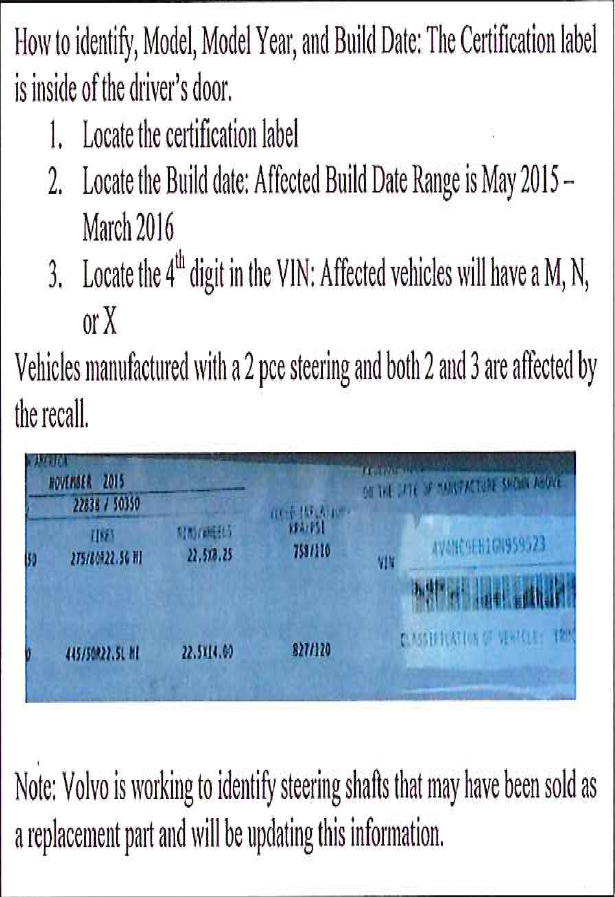Urgent Inspection Bulletin: Safety Recall Issued By Volvo Trucks
The Federal Motor Carrier Safety Administration (FMCSA) is issuing this bulletin based upon a safety recall initiated by Volvo Trucks affecting nearly 20,000 Class 8 motor vehicles, with more than 17,000 affected vehicles in the United States (click here to view Volvo Trucks’ “Safety Recall Alert”). FMCSA has become aware of a critical safety defect that could severely affect the safe operation of these vehicles due to a faulty two-piece steering shaft. This condition can lead to separation of the steering shaft without warning and an immediate loss of steering ability and control which may lead to a vehicle crash. Operators of vehicles affected by the Volvo recall should take the vehicles out of service as soon as possible. FMCSA is publishing this advisory bulletin to raise awareness of this issue in order to prevent serious crashes.
FMCSA and State inspectors are advised that certain 2016 and 2017 Volvo and Mack Titan model trucks may be affected by the recall. Volvo has advised that carriers contact the Volvo Customer Support line below to determine what, if any, action is necessary. If FMCSA or State inspectors identify a potentially affected vehicle, the driver should be directed to call the number below prior to proceeding, and to follow the instructions provided by Volvo.
Volvo Customer Support1-877-800-4945; Option 1 |
The graphic below illustrates how to identify these vehicles and may be provided to potentially affected drivers who are contacting Volvo.

In addition to being a serious safety issue, continuing to operate these vehicles could be considered a violation of 49 C.F.R. § 396.7, which prohibits operation of a vehicle in a condition likely to cause an accident or a breakdown. Safety demands that operators of these vehicles take prompt and appropriate action to ensure this issue is addressed. Motor carriers that violate applicable regulations may face enforcement action including, but not limited to, civil penalties and a finding that the defect constitutes an out-of-service condition.
